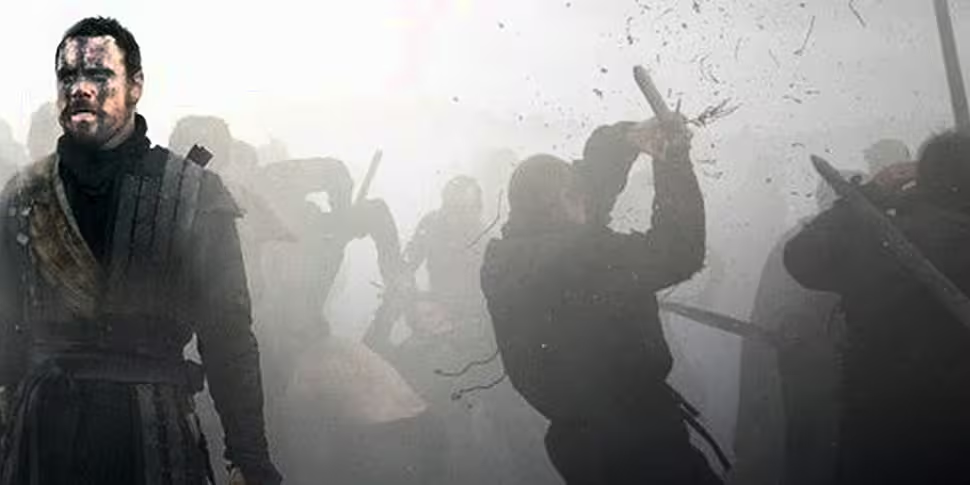The Martian (12A)
It is a busy week in the cinema with several major releases, beginning with Ridley Scott’s The Martian which came out today.
The Martian is the story of a manned-mission to Mars which goes wrong when the crew of the Ares III is caught in a dust storm and has to take off, leaving one of its members, botanist Mark Watney (Matt Damon) behind, and presumed dead.
He is not dead, but he is stranded 140 million miles from home with only enough provisions to last a few months – so he is living with a death sentence unless he can find a way of contacting NASA, growing enough food and distilling enough water to keep himself alive on a planet where nothing grows.
There have been lots of movies about Mars, and lots of movies about lone castaways but this is the first to make you feel what it is like to be stranded there, thanks to Scott’s 3D visual grandeur and his charismatic Crusoe.
This is a space picture that is suffused with the personality of its central character. Watney keeps a video diary to track his experiments and to hold on to his sanity and Damon sells these confessional monologues with the sort of wit and humour that few other actors could. Giving the picture its heart he single-handedly turns an epic survival tale into something intimate and human.
Moving the action in a 141-minute running time between NASA, Mars and the returning Ares spaceship, Scott, in his best picture in years, gives us a blockbuster with the brains to match both its budget and its ambition.
The Walk (PG)
The Walk is the story of French high-wire artist Philippe Petit who walked on line between the Twin Towers of the World Trade Centre in 1974.
The story has already been documented in Petit’s bestselling book Reach for the Clouds and James March’s 2008 Oscar-winning documentary Man on Wire, and the new movie’s essential achievement is in the way it maintains the tension in the story despite our knowledge of it.
The first half of The Walk is back story, introducing us to Petit (Joseph Gordon Levitt); his development as a juggler and a street performer; his relationship with his mentor, the circus acrobat, Papa Rudy (Ben Kingsley) and his growing obsession with the Twin Towers. This builds, in the second half, to what he calls the coup, “the artistic crime of the century,” where, with the aid of a team of six supporters, he cases the towers, as they are being fitted out, dodging, construction crews, foremen and cops and testing the rigging between towers.
We don’t have film of Petit’s walk, so it is up to director Robert Zemeckis to create a realistic sense of what this man was achieving in this dazzling, dare-devil act 1,350 feet above the ground in Manhattan. And he employs a wide range of film-making technique to convince us that this is happening – and happening with grace and physical realism. Go see The Walk – it will take your breath away.
Macbeth (15A)
I have to say that when Michael Fassbender’s Macbeth was first announced, I thought it sounded like an indulgence for an A-List film star; frankly, I couldn’t think of another reason for doing a new film version of the play. Then, apart, maybe, from Kurasawa’s Throne of Blood, there hadn’t really been a truly cinematic adaptation of Macbeth – and that’s what Australian director Justin Kurzel gives us in his movie.
Shakespeare in the cinema is usually weighted down – and indeed slowed down – by the heft of the dialogue. This doesn’t happen here, the movie never sacrifices its cinematic values to a reverence for the verse and pretty much everything about it works.
From the structure, the pacing and the performances – Fassbender, Marion Cotillard, Paddy Considine, David Thewlis, Jack Raynor, Sean Harris – to the production design and the locations (why hasn’t anyone shot it in Scotland before?), everything meshes for a sleek, moody dramatic purpose.
And Kurzel – and his scriptwriter – modify Macbeth’s motivations expertly, and intriguingly by making him a military man who is suffering from post traumatic stress disorder with the ghosts acting as hallucinations. It is not just the best Macbeth, it is the best Shakespeare we’ve seen in the cinema for years.
99 Homes (15A)
99 Homes is set in Florida in 2010 against the background of the sub-prime mortgage crisis.
Andrew Garfield plays a hard-working carpenter and single father, who is fired from his job, loses his home and gradually – against his better judgement – becomes the hired goon for the satanic property magnate (Michael Shannon) who foreclosed on him.
The main accomplishment of 99 Homes is the way it takes a comparatively dry subject matter and dramatises with insight, punch and human feeling. The two central characters get some impeccably nuanced speeches about who is most culpable for the savage fall-out from the crisis and director Ramin Bahrami moves it at a rattling pace.
All the performances are credible and convincing but Shannon’s monstrous realtor is especially impressive.
Philip Molloy presents The Picture Show every Saturday on Newstalk from 6pm. Listen back to the podcasts here.









